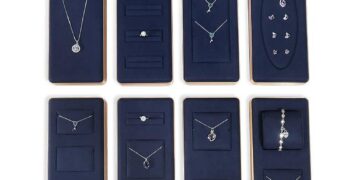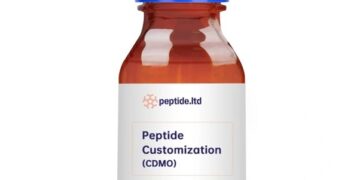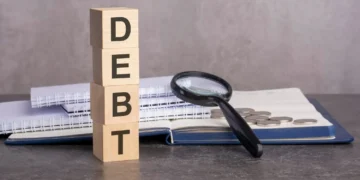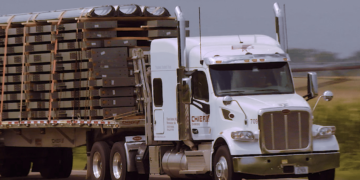Investing is an important part of financial planning, and the options for you here are endless. But the decision depends on your financial goal and risk appetite to find the best results. Having said that, if you are looking for a stable investment option that offers guaranteed returns without taking risks, a Fixed Deposit (FD) is your ideal option.
Today, almost every financial institution offers an FD plan that offers attractive interest rates and great returns. But, before investing in this deposit scheme, you must know a few important things about it to ensure you get the best outcome.
Top 9 things to know before investing in an FD
So, here are a few important things that you must know if you are planning to invest in an FD plan –
-
Applicable interest rate
The first thing to check before investing in an FD is the interest applicable to it. Now, the interest rate will differ from one bank to another and the deposit term. For instance, you are planning to book an FD at an interest rate of 5% for 12 months, but when you extend this term to 3 years, this rate can increase to 5.25%. So, the return is significantly higher.Nevertheless, conducting proper market research and comparing the interest rate from different financial institutions is important to find the best FD rate.
-
Current inflation rate
Once you have checked the interest rate, the next point to consider is the current inflation rate. Since inflation in the market diminishes the value of money, it can impact the return on your investment. So, depending on the inflation rate and the current FD rate, you need to figure out whether your investment will adjust the inflation and bring benefits, and then invest.
-
Interest payout options
The next point to review here is the interest payout options available on an FD. There are two options for you in this case, cumulative and non-cumulative. With the cumulative system, the interest is available for you at the end of the deposit tenure. Here, the interest you earn on your FD gets reinvested, and you enjoy the advantage of interest compounding, which further increases your total earning.
On the other hand, for the non-cumulative interest payout option, the interest is credited to your account monthly, quarterly, half-yearly, or annually, depending on the financial institution and the deposit you opt for.Now, a non-cumulative interest rate is ideal if you are looking for a regular income option. But, if long-term financial growth is your target, opting for the cumulative interest method is the way forward.
-
Terms of premature withdrawal
The next point to review here is the terms of the premature withdrawal of your deposit. FDs are term-specific deposit options, and it is vital to complete that term to realise its benefits. However, financial emergencies come unannounced, and you may need to break the deposit to manage that crisis.So, keeping this in mind, while investing, you need to check the terms of premature withdrawal. This includes whether you can withdraw partially, the associated charges, your losses, etc.Since these factors will be bank-specific, you need to consider them individually and then opt for a deposit with a financial institution that offers you the best facilities.
-
Facility to take a loan against FD
While breaking the FD is an option to meet financial difficulties, taking a loan against it can be a great alternative. Here, you get the opportunity to mortgage the deposit and get financing against it. This facility has a few advantages, and saving your losses is the biggest one. Once you avoid liquidating your FD, you save on the interest income you could have lost.Also, you don’t need to bear the additional charges associated with the premature withdrawal of an FD. The interest rate on loans against FD is comparatively lower than that of the other unsecured loan options.
Therefore, reviewing whether a financial institution offers this facility is important before investing.
-
Minimum and maximum deposit amount threshold
The next point to check is an FD’s minimum and maximum deposit amount. Since this parameter will be bank-specific, you need to see which meets your requirement and invest accordingly.
-
Term of deposit
Along with the maximum and minimum amount, you should also check the deposit term before investing. Usually, FDs are available for tenure as small as 7 days to as long as 10 years. However, certain financial institutions can go beyond that as well. So, review this option and then make your deposit.
-
Auto-renewal facility
It is important to check for the auto-renewal facility before investing in an FD, as this will reduce your hassle of reinvesting. Once the deposit matures, the bank will automatically renew your deposit, and you will continue to earn the interest on it.
However, if you want to make any changes to the deposit, like increasing the corpus or opting for a different payout option, you need to inform the financial institution in advance and proceed accordingly.
-
The reputation of the lender
Another essential aspect to remember here is that some financial institutions may offer a comparatively higher interest rate, which may come with an increased risk. So, before you invest, look into everything, like the reputation of the bank, its stability, previous record, etc.
Final thoughts
FDs are a great investment option, without a doubt. Considering the stability it brings to your investment portfolio with stable returns and guaranteed earnings, it helps you secure your financial future. However, to ensure that you are making the correct decision, factor in the pointers explained above, review all the terms of the deposit from the financial institution and then start investing.



























